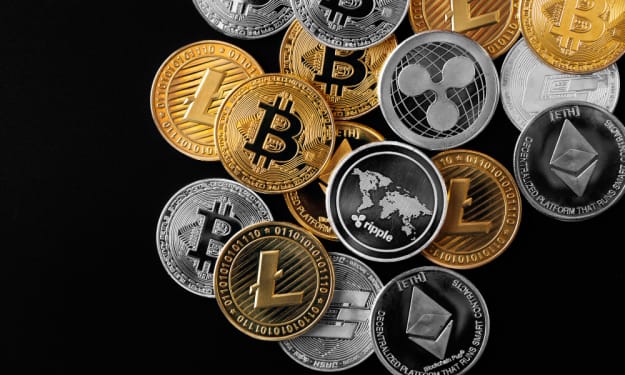Why are people calling Bitcoin a religion?
Bitcoin market

Peruse enough about Bitcoin, and you'll unavoidably run over individuals who allude to digital money as a religion.
Bloomberg's Lorcan Roche Kelly referred to Bitcoin as "the primary genuine religion of the 21st 100 years." Bitcoin advertiser Hass McCook has taken to referring to himself as "The Minister" and composed a progression of Medium pieces contrasting Bitcoin with a religion. There is a Congregation of Bitcoin, established in 2017, that expressly calls unbelievable Bitcoin maker Satoshi Nakamoto its "prophet."
In Austin, Texas, there are bulletins with trademarks like "Crypto Is Genuine" that unusually reflect the omnipresent boards about Jesus tracked down on Texas roadways. In the same way as other religions, Bitcoin even has dietary limitations related to it.
Religion's filthy mystery
So does Bitcoin's having prophets, evangelists, and dietary regulations make it a religion or not?
As a researcher of religion, I think this is an unacceptable inquiry to pose.
The grim mystery of strict investigations is that there is no all-inclusive meaning of what religion is. Customs like Christianity, Islam, and Buddhism absolutely exist and have similitudes, however, the possibility that these are instances of religion is somewhat new.
"Religion" as it's pre-owned today - a dubious classification that incorporates specific social thoughts and practices connected with God, the hereafter, or profound quality - emerged in Europe around the sixteenth 100 years. Before this, numerous Europeans comprehended that there were just three kinds of individuals on the planet: Christians, Jews, and rapscallions.
This model moved after the Protestant Reconstruction when a long series of wars started between Catholics and Protestants. These became known as "battles of religion," and religion turned into an approach to discussing contrasts between Christians. Simultaneously, Europeans were experiencing different societies through investigation and imperialism. A portion of the practices they experienced shared specific likenesses to Christianity and were likewise considered religions.
Non-European dialects have generally not had an immediate identical to "religion." What has been considered religion has changed throughout the long term, and there are consistently political interests in question in deciding if something is a religion?
As a religion researcher, Russell McCutcheon contends, "The fascinating thing to study, then, at that point, isn't what religion is or alternately isn't, however 'its making' process itself - whether that assembling action happens in a court or is a case made by a gathering about their own ways of behaving and establishments."
Pundits feature unreasonableness
Considering this, how could anybody guarantee that Bitcoin is a religion?
A few observers appear to be making this case to guide financial backers from Bitcoin. Developing business sector reserve supervisor Imprint Mobius, trying to pack down excitement about digital money, said that "crypto is a religion, not a speculation."
His assertion, in any case, is an illustration of a bogus division deception, or the presumption that in the event that something is a certain something, it can't be another. There is no great explanation that religion can't likewise be a venture, a political framework, or almost whatever else.
Mobius' point, however, is that "religion," like digital currency, is unreasonable. This analysis of religion has been around since the Edification, when Voltaire stated, "Nothing can be more in opposition to religion and the ministry than reason and good judgment."
For this situation, naming Bitcoin a "religion" recommends that bitcoin financial backers are enthusiasts and not pursuing reasonable decisions.
Bitcoin is great and healthy
Then again, some Bitcoin defenders have inclined toward the religious mark. McCook's articles utilize the language of religion to feature specific parts of Bitcoin culture and standardize them.
For instance, "stacking sats" - the act of routinely purchasing little parts of bitcoins - sounds abnormal. Yet, McCook alludes to this training as a strict custom, and all the more explicitly as "giving." Many places of worship work on giving, in which individuals make ordinary gifts to help their congregation. So this examination causes sat stacking to appear to be more natural.
While for certain individuals religion might be related to the unreasonable, it is likewise connected with what religion researcher Doug Cowan calls "the upside, moral and respectable misrepresentation." That is, certain individuals frequently expect assuming something is actually a religion, it should address something great. Individuals who "stack sats" could sound unusual. Yet, individuals who "tithe" could sound principled and healthy.
Involving religion as a structure
For religion researchers, ordering something as a religion can prepare for new bits of knowledge.
As a religion researcher, J.Z. Smith composes, "'Religion' is definitely not a local term; it is made by researchers for their scholarly purposes and subsequently is theirs to characterize." For Smith, sorting specific customs or social foundations as religions makes a near structure that will ideally bring about some new comprehension. In light of this, contrasting Bitcoin with a practice like Christianity might make individuals notice things that they didn't previously.
For instance, numerous religions were established by alluring pioneers. Charming authority comes from no administration office or custom except exclusively from the connection between a pioneer and their devotees. Magnetic pioneers are seen by their devotees as godlike or possibly uncommon. Since this relationship is problematic, pioneers frequently stay detached to hold devotees back from considering them to be standard people.
A few observers have noticed that Bitcoin creator Satoshi Nakamoto looks like a kind of prophet. Nakamoto's actual personality - or whether Nakamoto is really a group of individuals - stays a secret. However, the interest encompassing this figure is a wellspring of magnetism with ramifications for bitcoin's financial worth. Numerous who put resources into bitcoin do such to a limited extent since they see Nakamoto as a virtuoso and a monetary revolutionary. In Budapest, specialists even raised a bronze sculpture in recognition of Nakamoto.
There's likewise an association between Bitcoin and millennialism or the confidence in coming aggregate salvation for a select gathering.
In Christianity, millennial assumptions include the arrival of Jesus and the last judgment of the living and the dead. Some Bitcoiners have confidence in an unavoidable coming "hyperbitcoinization" in which bitcoin will be the main legitimate money. At the point when this occurs, the "Bitcoin devotees" who contributed will be legitimate, while the "no coiners" who avoided digital currency will lose everything.
A way to salvation
All at long last, some Bitcoiners view bitcoin as a method for bringing in cash, yet as the solution to humankind's concerns.
"Since the main driver of every one of our concerns is fundamentally cash printing and capital misallocation because of that," McCook contends, "the main way the whales will be saved, or the trees will be saved, or the children will be saved, is on the off chance that we stop the decline."
[Investigate the crossing point of confidence, governmental issues, expressions, and culture. Pursue This Week in Religion.]
This disposition might be the main mark of examination with strict practices. In his book "God Isn't One," religion teacher Stephen Prothero features the peculiarity of world religions utilizing a four-point model, in which every custom distinguishes an exceptional issue with the human condition, places an answer, offers explicit practices to accomplish the arrangement and advances models to demonstrate that way.
This model can be applied to Bitcoin: The issue is government-issued money, the arrangement is Bitcoin, and the practices incorporate empowering others to contribute, "stacking sats" and "holding" - declining to sell bitcoin to keep its worth up. The models incorporate Satoshi and different figures engaged with the production of blockchain innovation.
So does this correlation demonstrate that Bitcoin is a religion?
Not really, on the grounds that scholars, sociologists, and lawful scholars have various meanings of religion, which are all pretty much valuable relying upon what the definition is being utilized for.
Nonetheless, this examination might assist individuals with understanding the reason why Bitcoin has become so alluring to so many individuals, in manners that wouldn't be imaginable assuming Bitcoin were drawn closer as a simple financial peculiarity.
How To Get Rich With Bitcoin Even If You Have No Clue About Technology
About the Creator
Sithum Chathumina
I am an experienced cryptocurrency trader and I am an expert in trading






Comments
There are no comments for this story
Be the first to respond and start the conversation.